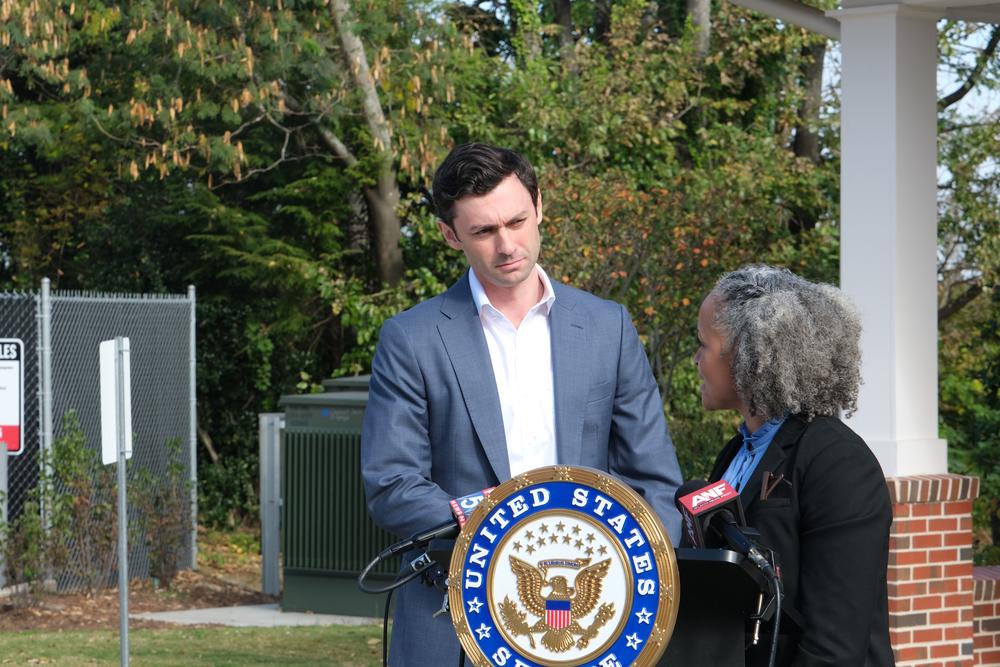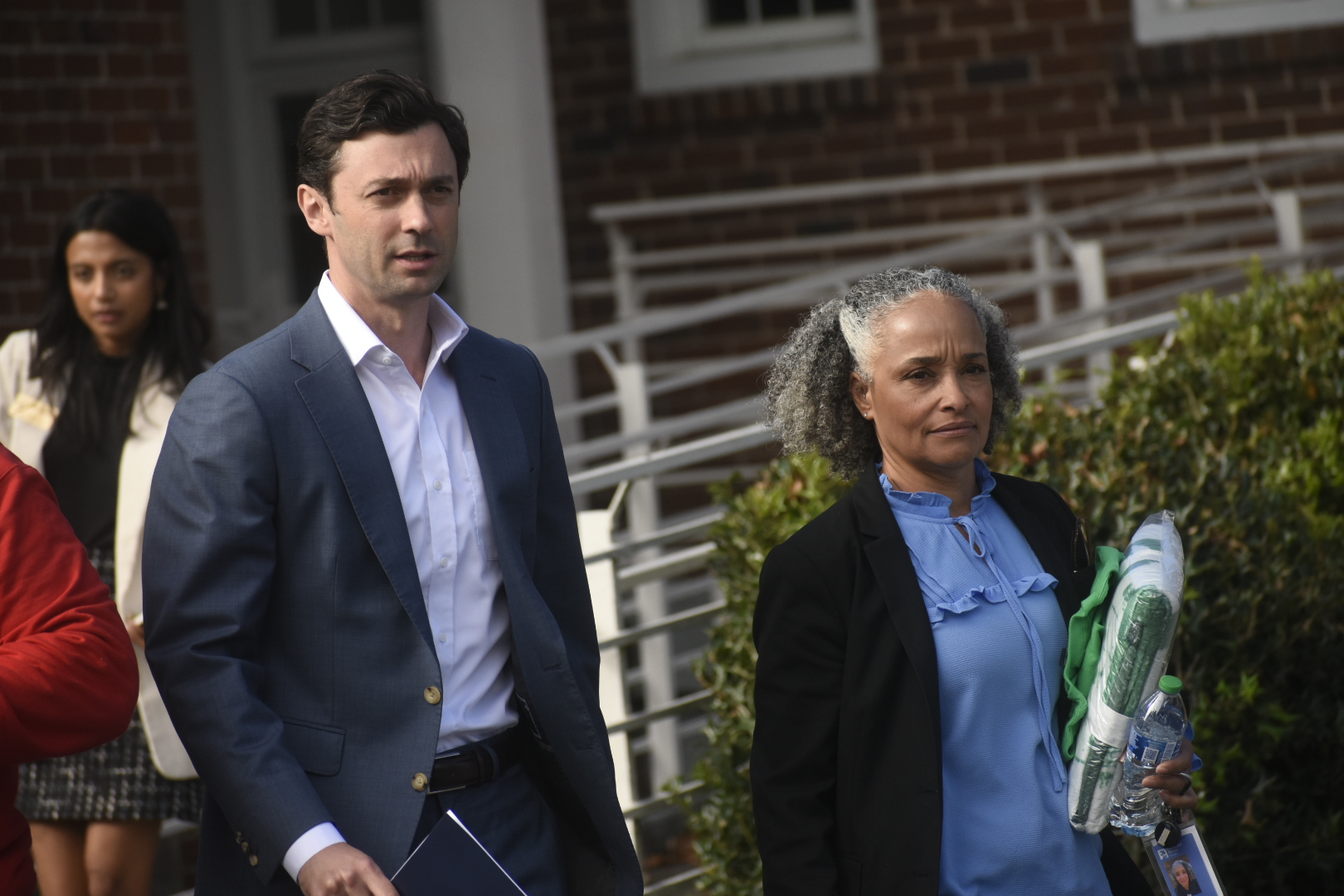
Nearly 1,800 children under the care of the Georgia Division of Family and Children Services were reported missing between 2018 and 2022, according to data revealed in a bipartisan Senate investigation.
Sen. Jon Ossoff, chairman of the U.S. Senate Human Rights Subcommittee, announced the findings Friday at Covenant House Georgia, which cares for young people dealing with homelessness. The Georgia Democrat is spearheading the investigation alongside Tennessee Republican Sen. Marsha Blackburn.
“These numbers are deeply troubling because these are more than numbers. These are children,” Ossoff said. “And according to the U.S. Department of Health and Human Services, and I think the leadership here at Covenant House has a lot of experience with issues like this, children who go missing from care are left more vulnerable to human trafficking, to sexual exploitation and to other threats to their health and safety.”
The data came at the subcommittee’s request from the National Center for Missing and Exploited Children.
Geographic and demographic information was not immediately available on the missing children, nor was any data on how long they were missing. Ossoff said the 1,790 missing children were involved in about 2,500 reports, indicating that some were reported missing more than once.
The NCMEC recognizes several types of missing children, including “endangered runaways,” children under 18 who are missing on their own accord and whose guardians do not know their whereabouts. Between 2013 and 2022, 94% of children missing from state agencies were endangered runaways.
In that time frame, 99% of NCMEC reports were resolved, meaning the child had returned home, entered law enforcement custody, or the child was not returning home, but the parent or guardian was satisfied with the situation. Less than 1% of children reported missing were recovered deceased.
There is no waiting period for missing children to be reported to law enforcement. NCMEC data show that between 2013 and 2022, the average child missing from care was missing for 46 days, with a median missing time of nine days.
The data did not include how many children in the custody of other state governments went missing in the same time frame. An Office of the Inspector General report found that in 46 states, not including Georgia, 74,353 such children had been reported missing for longer than 24 hours between July 1, 2018, and Dec. 31, 2020.
The same OIG report found that an estimated 34,869 missing children episodes during that period, or 47%, were never reported to NCMEC. State foster agencies are required by federal law to report missing children.
According to youth.gov, an interagency federal government website, “estimates vary, but as many as a third of youth in foster care may have run away from care at some point.”
DFCS did not respond to a request for comment.
The new revelations come just two days after Ossoff led a subcommittee hearing on a DFCS internal audit finding the department failed to meet risk assessment and safety management obligations 84% of the time.
Ossoff said the results of the investigation should not be held against the frontline DFCS workers.
“There are caseworkers, hard-working, talented, well-meaning people working in this system every day who are doing good things and working hard under very challenging circumstances,” he said. “So, by no means is this an indictment of those folks on the front line struggling, oftentimes with inadequate resources, to do right by vulnerable children in Georgia. We’re looking at systemic issues.”

Covenant House Chief Executive Officer Alie Redd told the Recorder that more than 70% of the children and young adults who get help there have had prior experience with DFCS. One of the top ways the state could address the problem is by facilitating cooperation between different parts of the agency, she said.
“I think there are some systemic things that we can work on and breaking down some of the areas of the (Division) of Family and Children Services, workforce development, mental health, education, physical health, housing security, all of those systems plus more really need to be able to come together because we have to solve for filling the gaps so that our young people don’t continue to fall through those cracks,” she said.
Ossoff did not give a timeline for the rest of the investigation, which began in February after media outlets reported on allegations of abuse and neglect of children in DFCS care. He indicated that investigators had already conducted over 100 interviews, but the endeavor is still in its early days. He said he hopes to publish specific recommendations at the end of the process and that he hopes to work with “partners at every level,” including state officials.
“Now we are still, again, in the early phases of this investigation,” he said. “I don’t think that we’re in a position at this time to make specific policy recommendations. Positive change begins with the truth, and so we are in the process right now of identifying those facts.”
Ossoff’s office announced Friday afternoon that he will be holding a hearing Monday with Georgia Juvenile Judges about the investigation and their experiences with Georgia’s foster care system.
SEE ALSO
Georgia DFCS gets scathing performance reviews at Ossoff human rights hearing






